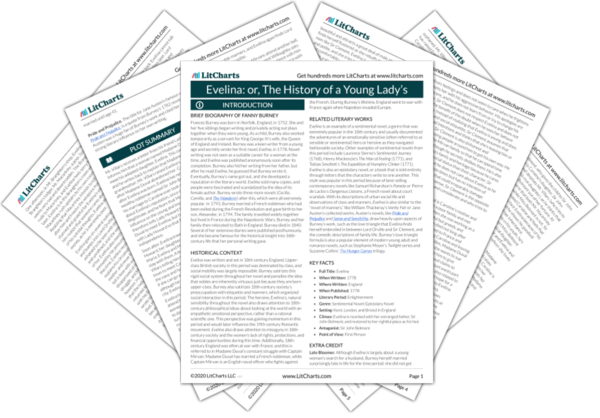Evelina assumes that Lord Orville is a hypocrite who hides his true intentions behind a veneer of nobility and politeness. Nobility was often associated with virtue in this period, but debauched noble characters, like Lord Merton, prove that this is not always the case. Similarly, upper-class etiquette was believed to be synonymous with virtue and sensibility (an 18th-century term associated with empathy and consideration of others)—but, again, Lord Merton shows no consideration for Evelina or women in general.
